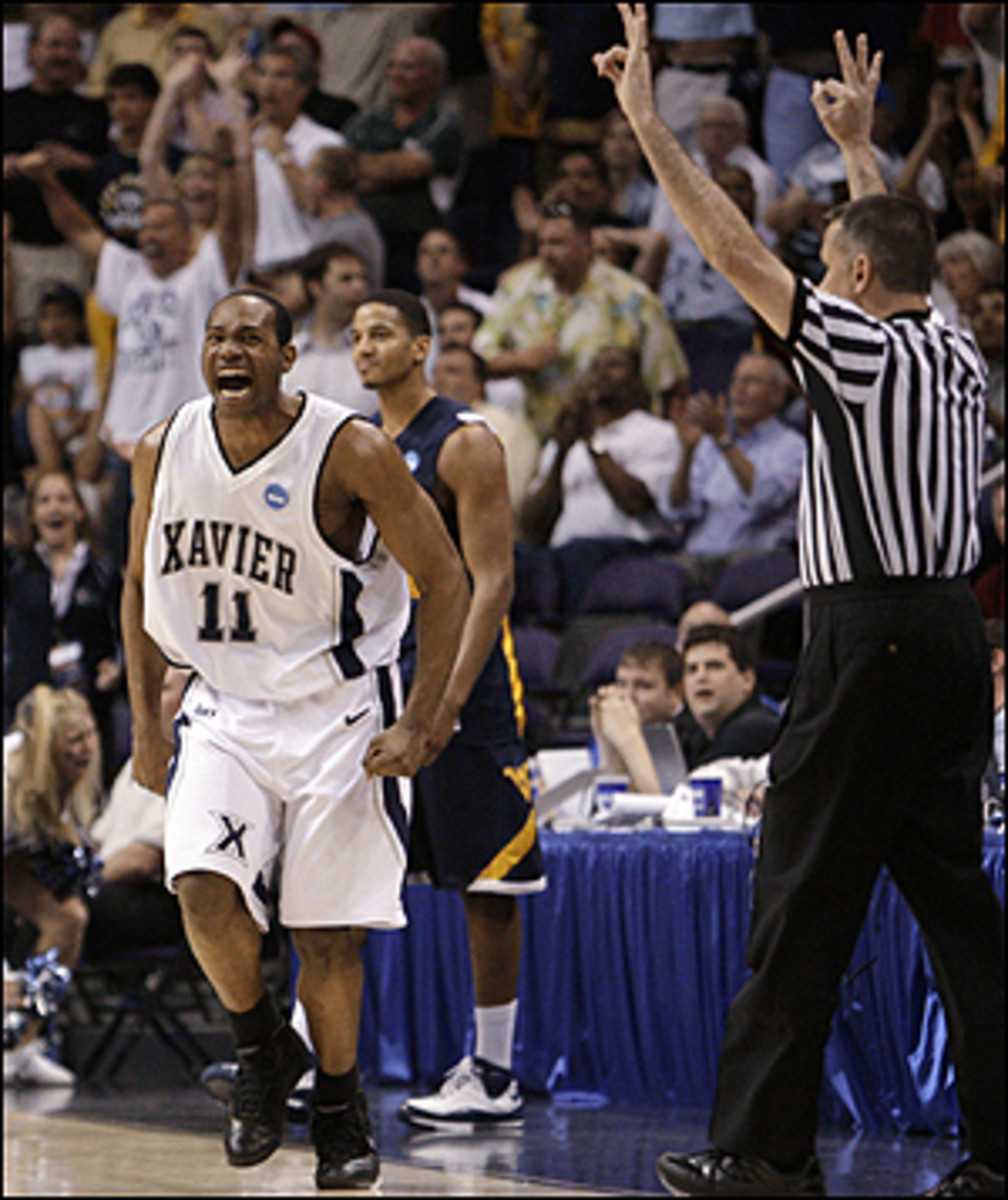
Overtime and out
PHOENIX -- Standing amidst the celebration in Xavier's locker room Thursday night, as teammates surrounded forward Josh Duncan and bounced him around their circle, shouting, "Don't let him out!" and then "Elite 8, Elite 8," it would be easy to conclude that the Musketeers seized a monumental victory over West Virginia at US Airways Arena.
But setting aside the jubilee -- from the towel-waving Xavier president in the stands, to the group hug involving forward B.J. Raymond and the entire school band -- the more accurate conclusion to draw from the third-seeded Musketeers' 79-75 victory would be that they seized the win in equal proportion to how West Virginia let it slip away.
"Once in a while you are on the wrong side of the coin and once in a while you are on the right side of the coin," said Xavier coach Sean Miller. "Today was our day."
Among the many things the Musketeers did to earn the victory was execute over the final 1:30 of overtime. Raymond hit two three-pointers in that stretch after not scoring a point in regulation. The second trey -- with :30 left and Xavier clinging to a one-point lead -- came off an inbounds pass with only two seconds on the shot clock. The play was drawn up as a lob to Duncan, but when Raymond's man converged inside, he drifted to the right corner, where Stanley Burrell found him with a skip pass.
"It wasn't some great play I drew," Miller said. "It was a terrific pass by Stanley and an amazing shot off the bounce by B.J."
The most glaring example of West Virginia's bungling came at the end of regulation. Star forward Joe Alexander was at the free-throw line with 14 seconds left, looking to convert a three-point play after his quick turnaround tied the score at 64.
Burrell jarred at him, "Come on, you are going to miss this one," and Alexander responded with a comment that, as Burrell put it, "You don't want to put in any [article]." After a longer-than-usual approach, Alexander's free throw rimmed out, and the game went to overtime.
West Virginia also led by six with three minutes left in the extra session but four missed free throws and a costly turnover by Wellington Smith just before Raymond's second three-pointer let Xavier take the game.
"[In overtime] we didn't do what we had been doing the whole game," West Virginia coach Bob Huggins said. "We had some breakdowns and they made big plays."
Had West Virginia won, Alexander's play in the second half would have been highlighted, as it was a complete transformation from his struggles before the break. In the opening 20 minutes, he made only one of four field goals and was flummoxed by the rotation of defenders Miller threw at him. C.J. Anderson took the first turn, fronting Alexander and denying him possession on the block. Duncan came next, followed by Jason Love, and both used their height advantage and strength to bull Alexander away from his favored spots.
Alexander played passively and at one point, Huggins pleaded with him, "Please, please, please," after he got the ball in the post but passed up a shot attempt. Overall, Huggins chastised his group for stagnating on offense -- "Move the damn ball" becoming a familiar refrain -- during all but the end of the half, when a late run cut what had once been an 18-point Xavier lead to 32-25.
In the second, Alexander asserted himself, scoring the Mountaineers' first basket and 15 points on 7-of-14 shooting. He finished with 18, but was on the bench for most of the overtime after fouling out with about four minutes remaining. "In the second, they did a better job cutting and moving and let their offense work," said Burrell. "They kept me off balance."
Duncan was enough to offset the Mountaineers' surge (despite picking up his fourth foul with 12:30 left in regulation), along with Xavier's surprising success from beyond the arc.
"In West Virginia's 10 losses, the one common thread was their three-point shooting. They didn't shoot as well from three," Miller said. "They were one for 11 from three. When you accompany that with the fact that we were 11 for 19 from three, that was the difference."





